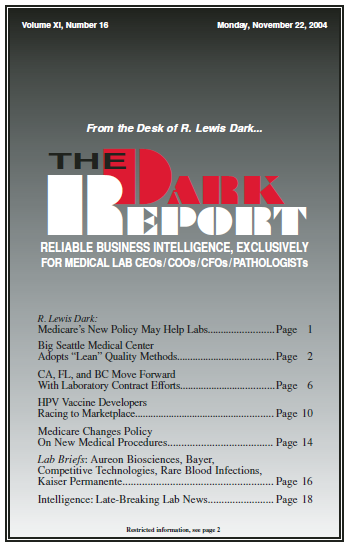CEO SUMMARY: Medicaid agencies in the bellwether states of California and Florida continue to push ahead with plans to revise laboratory test contract policies. In British Columbia, private laboratory companies face an uncertain future as the provincial health administration maneuvers to upset the laboratory contracting status quo. It’s a trend with the potential to be …
CA, FL, BC Move Forward With Lab Test Contracts Read More »
To access this post, you must purchase The Dark Report.


